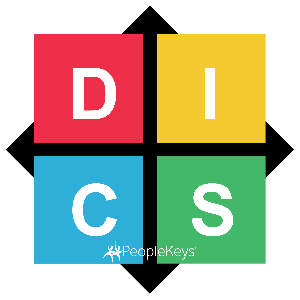- SHOP BY PRODUCT
- DISC TRAINING & CERTIFICATION TOOLS
- DISC RESOURCES
- BLOG
- SHOP BY PRODUCT
- DISC TRAINING & CERTIFICATION TOOLS
- DISC RESOURCES
- BLOG
- ALL ITEMS



Self-compassion and the capacity to forgive oneself may be the keys to long-term stress relief, say researchers at Brandeis University.
April is Stress Awareness Month. That means now is the perfect time to take a close look at the levels of stress in your life. Do you find that you dread opening your email in the morning, afraid of adding yet another task to the already impossibly large to-do list? Do you find yourself overeating or drinking in an attempt to numb your senses and avoid dealing with problems? Are you so stressed out that your temper is out of control? Do you find yourself taking out your frustrations on the people around you? Whatever your natural reaction to stress is, one thing is clear: High levels of stress can lead to serious problems.
There are countless strategies for alleviating stress, many of which we have talked about on our blog. What if you could prevent stress before it even had a chance to start? A study by researchers at Brandeis University suggests that the key to a stress-free life is self-compassion. The study, published in the March 2014 edition of the journal Brain, Behavior, and Immunity, found that people who are able to forgive themselves for their own flaws and mistakes are actually healthier and less stressed than those of us who don’t.
In the study, a group of 41 individuals were tested in a laboratory setting. In the first part of the test, participants were asked to answer a series of questions designed to measure their capacity to forgive and have compassion for themselves. The answers to questions like “I try to be understanding and patient toward aspects of my personality I do not like” and “I’m disapproving and judgmental about my own flaws and inadequacies” told researchers which test subjects were more forgiving of their own shortcomings. After those results were recorded, the researchers subjected the same individuals to stress tests made to produce physical reactions in the body. They found that individuals who scored higher on self-compassion scored significantly lower in their levels of stress. Conversely, self-critical people exhibited much higher levels of stress than their compassionate counterparts. Not only that but self-critical people tended to hold onto stress for much longer periods of time.
High levels of stress are associated with a long list of serious health problems, including heart disease, depression, headaches, diabetes, and even Alzheimer’s disease. Lessening the levels of stress you experience isn’t just about reducing anxiety—it’s about reducing the risk of medical complications that can shorten and reduce the quality of your life.
Activities like yoga, meditation, music therapy, and exercise can be very helpful in reducing stress. But the Brandeis study gives us a new perspective on the root causes of the problem. If the researchers at Brandeis are right, the levels of stress you experience have less to do with your coping strategies after the fact and more to do with the way you see yourself.
So how do you learn to develop self-compassion? The first step is understanding yourself. What are your natural talents? Your challenges? Your way of communicating with others? Your motivational triggers? When you understand your personality style, you have a much clearer picture of who you are and why you do the things you do. A general DISC personality style report can be a good starting place, or for an even deeper sense of self, a Spiritual Gifts Report can also be helpful. No matter how you do it, understanding who you are is only the first step. The second is forgiveness.
Although we’d all love to be good at everything we try, that’s just not possible. You’re not perfect. But the good news is that no one else is, either. We try, we fail, and we pick ourselves back up again. We make mistakes, we have regrets, and we are flawed. And you know what? Imperfection can be a beautiful thing if you embrace it, learn from it, and develop the ability to forgive your own faults.
The takeaway lesson is this: If you’re able to understand and forgive yourself, you will live a longer and healthier life. Developing a clear sense of self is the best way to become less self-critical. Put away the self-loathing and cut yourself some slack. Alexander Pope said it best: “To err is human; to forgive, divine.”
Read more on our blog about proper stress management for different personality types.

©1985- PeopleKeys, Inc. All Rights Reserved
WORKING DAYS/HOURS
Mon - Fri / 8:30AM - 5:00PM EST
